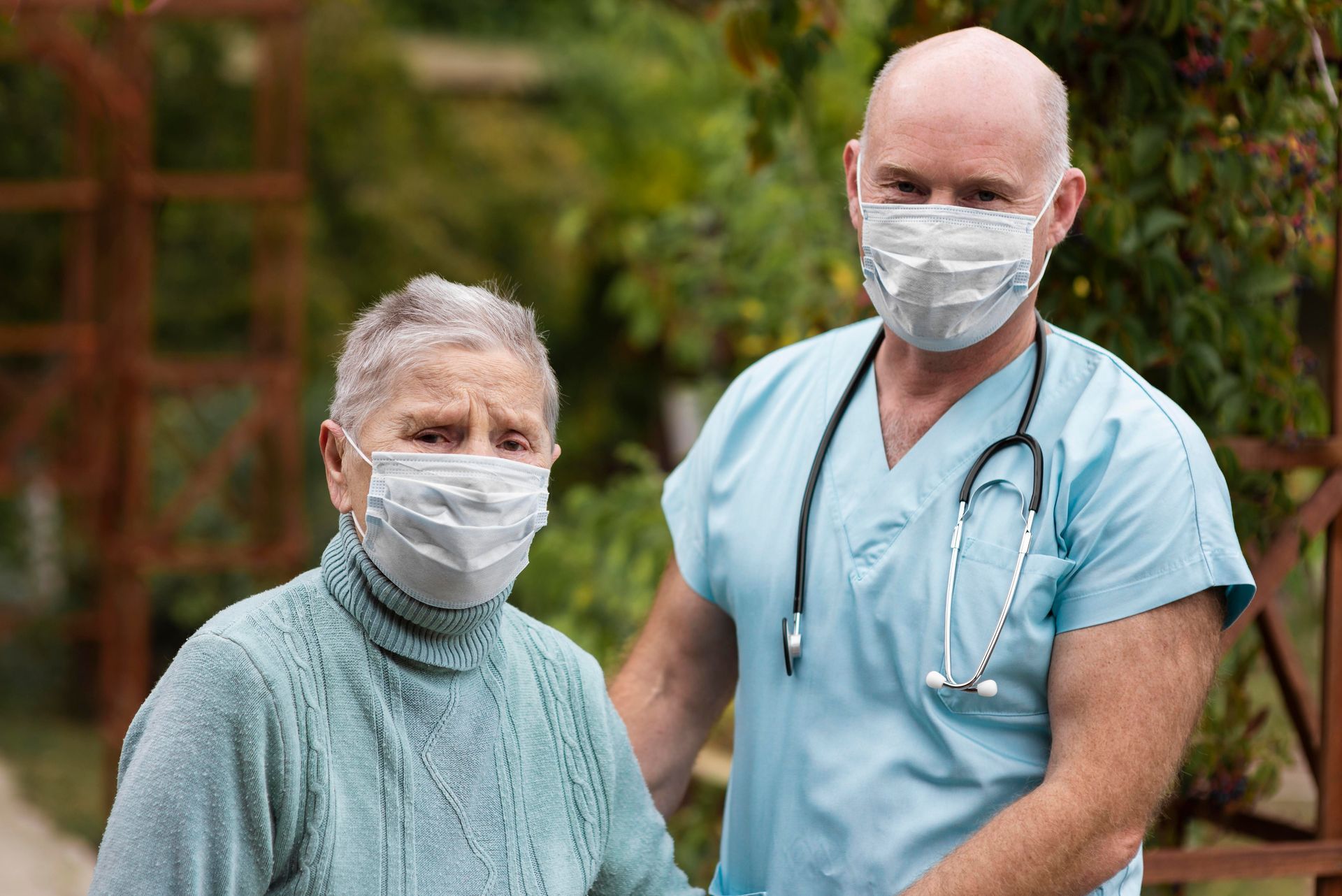Benefits of Working as a Rural Nurse
Being a nurse is a rewarding and fulfilling profession that involves caring for individuals during some of their most vulnerable moments. Nurses play a vital role in the healthcare system, providing compassionate and holistic care to patients across various settings. They assess and monitor patients, administer treatments and medications, educate individuals and families, advocate for patients' needs, and collaborate with multidisciplinary teams to ensure optimal health outcomes.
Nurses possess a unique combination of knowledge, skills, and empathy, enabling them to provide physical, emotional, and psychological support to those in their care. It is a profession that requires dedication, resilience, and a genuine desire to make a positive impact on people's lives. Being a nurse offers the opportunity to make a difference, promote health and well-being, and be part of a profession that is at the forefront of delivering quality healthcare services. Working as a nurse in rural areas of Australia offers several unique benefits.
This article will look at some of the advantages of working in rural and remote communities.
· Benefits of Working in Rural Nursing Australia
· The Role of Nurses in Rural and Remote Communities
Benefits of Working in Rural Nursing Australia
Diverse Experience
Rural nursing provides a diverse range of clinical experiences and exposure to a variety of medical conditions. You may encounter a wider range of cases than in urban settings, allowing you to develop a broader skill set.
Increased Autonomy in Rural and Remote Areas
Nurses who work in rural and remote areas often have greater autonomy and responsibility for critical care due to the smaller healthcare teams. This can lead to enhanced decision-making abilities and the opportunity to practice at the top of your scope of practice.
Remote Communities are Closer-knit
Rural and remote areas foster close-knit communities, where you can build strong relationships with patients, clients, families, and colleagues. Being part of a tight community can be rewarding and fulfilling, as you become an integral part of people's lives and make a significant impact on the health of the community.
Professional Growth and Leadership Opportunities
In rural nursing, you may have more chances for professional growth and leadership positions. With smaller healthcare teams, you may take on additional responsibilities and be involved in various aspects of healthcare delivery.
Work-Life Balance
Rural areas often offer a better work-life balance than jobs in larger cities. You may have more flexible working hours, reduced commute times, and a less hectic pace of life. This can contribute to overall job satisfaction and personal well-being.
Professional Development Support in Rural and Remote Nursing
Many rural and health professionals and organisations provide support and incentives to encourage you for professional development. This can include financial assistance for further education, training, or conferences to enhance your skills and knowledge.
Enhanced Scope of Practice
In rural areas, you may have the opportunity to broaden your scope of practice and learn additional skills outside traditional nursing roles. With fewer specialised healthcare professionals available, you might be trained to perform tasks typically reserved for doctors and other healthcare professionals, expanding your clinical expertise further.
Greater Influence on Healthcare Delivery
Working in rural nursing allows you to make a tangible impact on the country and the regional healthcare delivery system. Your contributions can directly shape the health outcomes of the community and influence policy decisions that benefit rural populations.
Competitive Remuneration
Rural nursing positions often offer competitive salaries and additional financial incentives, with factors such as relocation allowances, retention bonuses, and subsidised housing. These incentives aim to attract and retain healthcare professionals in rural areas.
Stunning Natural Environment
Rural Australia offers breathtaking natural landscapes, scenic beauty, and a peaceful environment. If you enjoy nature and a slower pace of life, working in rural nursing can provide an excellent opportunity to live in and explore some of the most beautiful places and amazing landmarks.
A registered nurse in rural areas can feel professional isolation at times, but many nurses find the rewards and unique experiences of rural and remote placements highly fulfilling and worthwhile.
The Role of Nurses in Rural and Remote Communities
Remote area nurses in Australia perform a wide range of clinical skills and responsibilities, often taking on diverse roles due to the unique healthcare needs of many rural and remote locations and communities. Here are some of the common tasks and responsibilities of rural nurses:
Primary Care and General Nursing
Rural nurses provide primary care services, attending to the general healthcare needs of the community. This includes assessing and treating common illnesses, injuries, and chronic conditions. They may also conduct health screenings, immunisations, and health promotion activities.
Emergency Care
Rural, nurses and midwives often serve as the first point of contact in emergency situations, especially in remote areas without immediate access to a hospital or ambulance service. They are trained to handle emergencies, stabilise patients, and coordinate with medical teams for further care and evacuation if necessary.
Maternal and Child Health
Rural nurses and midwives play a crucial role in maternal and child health services. They provide antenatal and postnatal care, conduct health assessments for newborns and children, offer parenting support, and facilitate access to specialised services, such as midwifery and paediatric care.
Chronic Disease Management
With their training and a focus on preventive care and chronic disease management, rural nurses and doctors educate patients about healthy lifestyles, self-management strategies, and medication adherence. They often work closely with patients with conditions like diabetes, cardiovascular diseases, respiratory disorders, and mental health issues.
Remote Area Nursing
In the country and remote regions, nurses may work in various locations in isolated communities or on mobile health clinics, providing healthcare services to populations with limited access to medical facilities. They deliver basic healthcare, health education, and health promotion activities while addressing the unique challenges of remote living.
Community Health and Health Promotion
Rural nurses actively engage in regional and community health initiatives. They conduct health education sessions, promote disease prevention and healthy behaviours, and collaborate with community groups, schools, and organisations to improve the overall health and well-being of the population.
Indigenous Health
In rural areas with Indigenous populations, nurses may work closely with Indigenous communities, respecting cultural practices and addressing specific health disparities. They collaborate with Indigenous health workers, provide culturally appropriate care, and contribute to closing the gap in Indigenous health outcomes.
Aged Care
Rural nurses often provide care to the elderly population in different communities, including home visits, health assessments, medication management, and support for ageing individuals and their families. They work in collaboration with aged care facilities, community organisations allied health professionals, and other healthcare professionals to ensure comprehensive care for older adults.
Outreach Programs
Rural nurses are involved in outreach programs that aim to improve healthcare access in underserved areas. They may participate in mobile clinics, telehealth services, and fly-in, fly-out programs to provide healthcare to remote communities.
Health Promotion and Advocacy
Rural nurses advocate for the health needs of the community, working with local health authorities and organisations to develop policies and programs that address rural health issues. They may engage in public health campaigns, community development projects, and initiatives that improve healthcare infrastructure and services in remote locations.
It's important to note that the exact roles and responsibilities of rural nurses and nursing workforce can vary depending on the specific location, healthcare organisation, and community needs. Rural nursing requires adaptability, resourcefulness, and a comprehensive understanding of the unique challenges and opportunities present in rural healthcare delivery.












